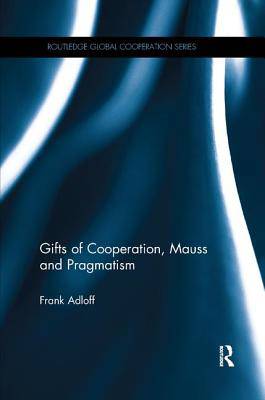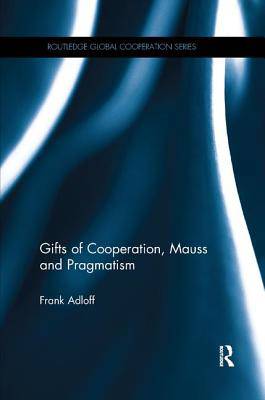
- Retrait gratuit dans votre magasin Club
- 7.000.000 titres dans notre catalogue
- Payer en toute sécurité
- Toujours un magasin près de chez vous
- Retrait gratuit dans votre magasin Club
- 7.000.000 titres dans notre catalogue
- Payer en toute sécurité
- Toujours un magasin près de chez vous
Description
This book focuses on the contribution of Marcel Mauss (1872-1950) to social theory and a theory of cooperation. It shows that Mauss's essay "The Gift" (1925) can be seen as a classic of a pragmatist, interactionist and anti-utilitarian sociology. It critiques the dichotomy of self-interest and normatively orientated action that forms the basis of sociology. This conceptual dichotomization has caused forms of social interaction (that cannot be localized either on the side of self-interest or on that of morality) to be overlooked or taken little notice of. The book argues that it is the logic of the gift and its reciprocity that accompany and structure all forms of interaction, from the social micro to the macro-level. It demonstrates that in modern societies agonistic and non-agonistic gifts form their own orders of interaction.
This book uniquely establishes the paradigm of the gift as the basis for a theory of interaction. It will be of great interest to researchers and postgraduates in social theory, cultural theory, political sociology and global cooperation, anthropology, philosophy and politics.
Spécifications
Parties prenantes
- Auteur(s) :
- Editeur:
Contenu
- Nombre de pages :
- 196
- Langue:
- Anglais
- Collection :
Caractéristiques
- EAN:
- 9780815359258
- Date de parution :
- 21-12-17
- Format:
- Livre broché
- Format numérique:
- Trade paperback (VS)
- Dimensions :
- 156 mm x 233 mm
- Poids :
- 452 g







